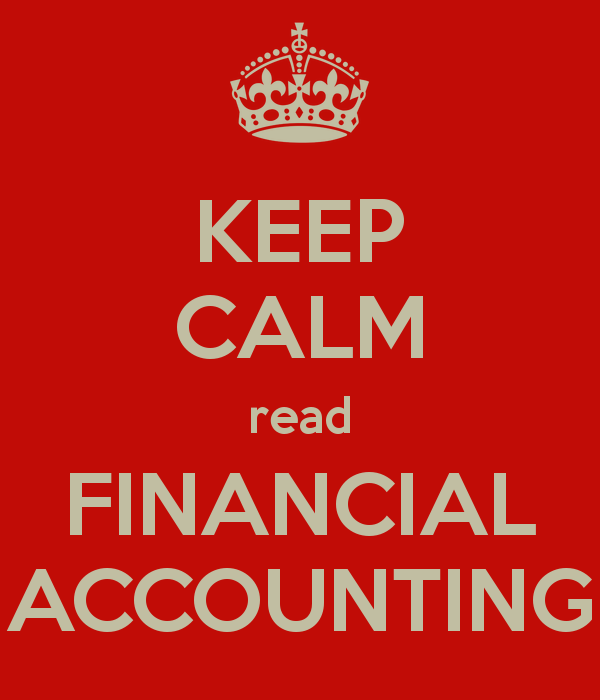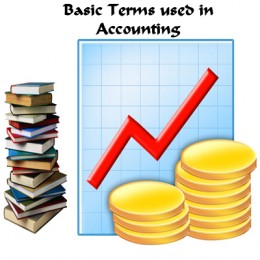FAQ 1. What is Financial Accounting?
Accounting is a term we have been familiar since our F.Y.J.C as commerce students, the basics of knowing what to earn and how to spend is not something that is not new to us. Financial accounting is the subject that helps us keep track of our finances on a personal or an organizational level.
It includes basic and day to day information on the financial records of the business, it helps us keep track on how and why certain expenses were made or why did we incur losses. It helps us know how much money we have and where did we invest it to gain profits and interest.
FAQ 2. Why Do I Have To Study Financial Accounting?
The primary purpose of any business is profits and in order to earn profits we must know exactly how much we gained we must know how much did we spend and what we got in return for all of those expenses.
Accounting forms the base of any individuals life as it is very essential to know how much is spent on what and how does it benefit us. The same applies to companies and not just to know our expenses and profits but also to accurately be able to assess our losses and how can we gain more by spending lesser is what Financial accounting teaches us.
It is one of the most essential and scoring subjects that you can come across in your BMS course. Apart from being very logical and practical oriented it is also quite easy to grasp and fun to solve if you have your accounting basics right.
FAQ 3. Is Financial Accounting Interesting?
Yes, it is very interesting and is one subject you can do at any time of the day without falling asleep. People who are less comfortable with calculations and sum solving do find it difficult to adjust to the practical nature of the subject, but once you get hooked on to it; it’s way better than any theory subject you would come across. Plug in your head phones take up your calculator and start going calcu-crazy with the sums, you will surely fall in love with it.
FAQ 4. Do I need to join a Coaching Class for Financial Accounting?
Yes, we recommend that you join a good coaching class for the subject because the amount of practice and techniques it requires is better managed with the structured guidance of a coaching class. The benefit here is that in case you have your accounting base weak it can be taken care of in the tution class. You have the option of private tutions that are more expensive as compared to the group tutions or coaching class batches you attend.
In case you feel you are very confident of your understanding of the subject and have really kickass faculty in college you can surely choose self study as an option, but do make sure you put in the required hours daily.
FAQ 5. What is the Syllabus for Financial Accounting?
Unit 1: Meaning And Scope Of Accounting
Unit 2: Accounting Transactions
Unit 3: Depreciation Accounting
Unit 4: Final Accounts of a Sole proprietor.
For detailed Syllabus check Here!
Some Accounting terminologies you must be aware of:
1. Journal
It is the primary book of keeping records. A journal lists down chronologically when and to whom was money given or received from.
2. Ledger
A ledger is the second book for posting your accounting information after the journal. A ledger helps you acknowledge accounts separately and make records accordingly for each of them differently.
3. Subsidary Books
If we make journal entries all together and then post it into corresponding ledger accounts we end up consuming a lot of time and efforts of manual labor. To avoid those subsidiary books for specific kinds of expenses are kept and the transactions are recorded there in chronological order, making follo up ledger posting easier.
Subsidiary books are those books of original entry in which similar nature of transactions are recording in a chronological order.
Kinds of Subsidiary Books:
Subsidiary books can be of the following types: purchase day book, Sales day book, purchase returns book, Sales returns book, Bills receivable books, Bills payable books, Cash book.
4. Bank Reconciliation Statement
Bank reconciliation statement or BRS is a form that allows individuals to compare their personal bank account records to the bank’s records of the individual’s account balance in order to uncover any possible discrepancies or mistakes that may have occurred in the process of recording the transactions..
5. Capital expenditure
A capital expenditure is incurred when a business spends money either to buy fixed assets or to add to the value of an existing fixed asset with a useful life extending beyond the taxable year.
6. Revenue expenditure
Revenue expenditure is the expenses incurred on day to day functioning of the business.
7. Profit
When monetary benefits are made over and above the the expenses incurred then it is termed as a profit for the business.
8. Loss
Loss may refer to a negative difference between retail price and cost of production
9. Depreciation
Depreciation refers to two aspects of the same concept:
- the decrease in value of assets (fair value depreciation), and
- the allocation of the cost of assets to periods in which the assets are used (depreciation with the matching principle).
10. Trial balance
A trial balance is a list of all the General ledger accounts (both revenue and capital) contained in the ledger of a business. This list will contain the name of the nominal ledger account and the value of that nominal ledger account.
11. Profit and Loss Account
A financial statement that summarizes the revenues, costs and expenses incurred during a specific period of time is termed as the profit and loss account. These records provide information that shows the ability of a company to generate profit by increasing revenue and reducing costs. The P&L statement is also known as a “statement of profit and loss”, an “income statement” or an “income and expense statement”.
12. Manufacturing Account
Statement used in accounting process of a manufacturing organization. This financial statement does not show profit and loss figures but rather the cost of direct materials and labor. A manufacturing account also includes production overhead.
14. Trading account
An account similar to a traditional bank account, holding cash and securities, and is administered by an investment dealer.
15. Balance sheet
In financial accounting, a balance sheet or statement of financial position is a summary of the financial balances of a sole proprietorship, a business partnership, a corporation or other business organization. Assets, liabilities and ownership equity are listed as of a specific date, such as the end of its financial year.
FAQ 6. How Do I Study Financial Accounting?
 “In Financial Accounting, it’s all about practicing sums and formula’s” say Hardik Thakkar Sir, Thakkar tutorials. You need to make up a sheet for the formula’s and keep revising also do not forget to focus on the theory. Students usually avoid the theory part of the syllabus and later on regret when they have to learn everything in a short span of time and leave out a lot of the theory for optional questions, which in turn reduces your marks.”
“In Financial Accounting, it’s all about practicing sums and formula’s” say Hardik Thakkar Sir, Thakkar tutorials. You need to make up a sheet for the formula’s and keep revising also do not forget to focus on the theory. Students usually avoid the theory part of the syllabus and later on regret when they have to learn everything in a short span of time and leave out a lot of the theory for optional questions, which in turn reduces your marks.”
“Financial accountancy is very interesting and easy as we have done a lot of it in our previous years”, says Nimesh Shah a BMS topper from Kapol college. “The best part about this subject is that it has very limited theory so we can easily focus on the sums and score very good marks,” he adds.
Practice, Practice and more practice is the only key to scoring in accountancy. You might be a Topper, an average student or be struggling to clear your subjects but no body can be excused from the rigorous ritual of practice required in accountancy.
If you wish to be a topper and gain your efforts worth from the subject then you need to take up your accounting theory on a particular week and complete it thoroughly within the stipulated time frame of 5-7 days. This knowledge is what will help you score more than the regular students. Also it will be a boon at the time of the viva’s.
Daily 2 hours of practice is what is ideal for scoring in Accountancy. If you have just a month left before the exam then do make sure that you do Accounts daily for 2 hours without fail. I lay stress on practice because, it is very easy to understand the concepts and solve sums but on exam day you might just forget due to lack of practice.
Students commonly get confused while making formats in the accountancy paper. The second most common confusion comes up with formulas. Never take a risk with these two. Never try and learn sums because that is one thing you will surely forget. Silly mistakes also form a very important part of accountancy sums and giving up after a series of mistakes is not something you should do.
Keep practicing and keep focus, Accounts is one to stand by you faithfully in the race to gain marks!
Can Financial Accounting be made Fun?
Yes, you can definitely try out making accountancy fun by calling over your group of buddies for a session of group studies. Group studies is usually unadvisable for theory subjects because its difficult to learn and understand theory concepts. But while you have to go on a sum solving marathon, you can always do it in a group with a bunch of friends. Play some music or simply start solving, and you will be surprised at the number of sums you will be able to solve in a short span of time. You can also challenge each other and the one with the lowest numbers of problems tallying can treat the others to some hot vada-pav’s or yummy pastries at the end of the sum solving marathon!
FAQ 5. Reference Books for Financial Accounting?
If you have joined a particular coaching class then your notes are of utmost importance. Try solving sums from notes that your friends going to other coaching classes provide.
College notes by your own professors and from other college’s will also help a lot. Apart from these Vipul Prakarshan and Rishabh Publication Textbooks work just fine.
You can also solve a lot of sums from past papers from your college library as they will be of utmost help.
FAQ 6. What are the best Notes I can refer for Financial Accounting?
BMS.co.in- Financial Management Theory Notes
FAQ 7. Does Financial Accounting have any scope for a career in the future?
Financial accounting is one of the fields that can offer a lot many career options provided that you are interested in accounting. In the course of your BMS education itself you have subjects like management accounting, taxation, cost accounting and international finance that have an accountancy background and you can end up making a career in any of them.
You can take up jobs in banks, insurance companies or as an accountant in an accountancy firm. Every company has their own finance department and there are always vacancies at such places.
If you take to liking Accountancy then there are a lot of options available for your future, becoming an accountancy professor for any college or coaching class is also a great opportunity for the same.
You can take up further studies with a financial specialization while making a career as an MBA, you can also do courses like M.com, C.A, CFA or a CFP if you truly have a strong liking for the subject.
Did You Know!
If you like this subject so much then you can deduce a lot of factors about your personality from the same. People who prefer analytic subjects are very goal oriented as they know what sort of an output they need in life. You like precision and pay attention to details.
You have strong concentration abilities and a logical thought process towards everything in life. Also the preference of a subject like accountancy shows that you have the patience and a frame of mind that is able to focus easily without paying heed to any distractions.


![KeepCalmStudio.com-[Crown]-Keep-Calm-And-Trust-Bms-co-in](https://www.bms.co.in/wp-content/uploads/2014/09/KeepCalmStudio.com-Crown-Keep-Calm-And-Trust-Bms-co-in.png)











49 Comments